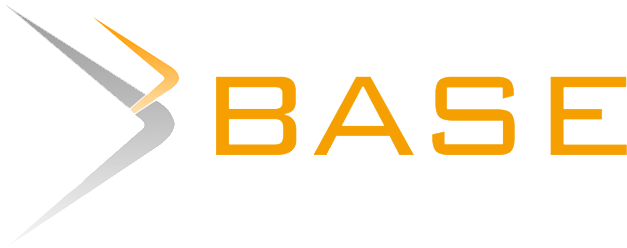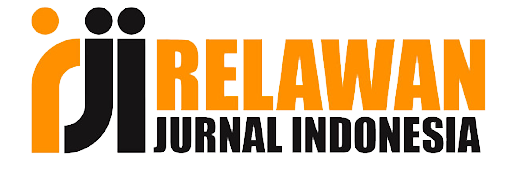Mengarungi Gelombang Digital: Peran Self-compassion dan Gratitude Terhadap Online FoMO Pada Mahasiswa
Abstract
This research aims to determine the role of self-compassion and gratitude on online FoMO in students. Testing the hypothesis in this research uses multiple linear regression analysis. The subjects in this research were 257 students in Lampung, Indonesia. Partially, in this research, the results showed that there was a very significant role between self-compassion and online FoMO, p = 0.007 and t value of -2.272. The partial test of the second hypothesis resulted in a very significant role between gratitude towards online FoMO p = 0.004 with a t value of -2.931. Based on the multiple linear regression test, the results showed that there was a very significant role between self-compassion and gratitude on online FoMO in students (F = 10.916, significance 0.000 p<0.001). This means that the higher the compassion and gratitude, the lower the online FoMO and vice versa. The contribution of the effective variable self-compassion to online FoMO was 7.6% and the effective contribution of gratitude to online FoMO was 10.1%.
Penelitian ini bertujuan untuk mengetahui peran antara self-compassion dan gratitude terhadap online FoMO pada mahasiswa. Menguji hipotesis pada penelitian ini menggunakan analisis regresi linear berganda. Subjek pada penelitian ini merupakan mahasiswa di Lampung, Indonesia sebanyak 257 mahasiswa. Secara partial pada penelitian ini didapatkan hasil bahwa terdapat peran yang sangat signifikan antara self-compassion terhadap online FoMO p = 0.007 dan nilai t -2,272. Uji partial hipotesis kedua dengan hasil terdapat peran yang sangat signifikan antara gratitude terhadap online FoMO p = 0.004 dengan nilai t -2.931. Berdasarkan uji regresi linear berganda didapatkan hasil terdapat peran yang sangat signifikan antara self-compassion dan gratitude terhadap online FoMO pada mahasiswa (F = 10,916 signifikansi 0,000 p<0,001). Artinya, semakin tinggi self-compassion dan gratitude maka akan semakin rendah online FoMO dan sebaliknya. Sumbangan efektif variable self-compassion terhadap online FoMO sebesar 7,6% dan sumbangan efektif gratitude terhadap online FoMO sebesar 10,1%.
Keywords
Full Text:
PDFReferences
Al-Furaih, S. A., & Al-Awidi, H. M. (2021). Fear of missing out (fomo) among undergraduate students in relation to attention distraction and learning disengagement in lectures. Education and Information Technologies, 26(2), 2355-2373.
Aisafitri, L., & Yusriyah, K. (2021). Kecanduan media sosial (fomo) pada generasi milenial. Jurnal Audience: Jurnal Ilmu Komunikasi, 4(01), 86-106.
Akbar, RS, Aulya, A., Psari, AA, & Sofia, L. (2019). Ketakutan akan kehilangan momen (FoMO) pada remaja kota Samarinda. Psikostudia J.Psikol, 7 (2), 38.
Alutaybi, A., Al-Thani, D., McAlaney, J., & Ali, R. (2020). Combating fear of missing out (fomo) on social media: the fomo-r method. International Journal Of Environmental Research And Public Health, 17(17), 6128. https://doi.org/10.3390/ijerph17176128
Baker, Z. G., Krieger, H., & LeRoy, A. S. (2016). Fear of missing out: Relationships with depression, mindfulness, and physical symptoms. Translational Issues in Psychological Science, 2(3), 275. https://doi.org/10.1037/tps0000075
Barry, C. T., & Wong, M. Y. (2020). Fear of missing out (fomo): A generational phenomenon or an individual difference?. Journal of Social and Personal Relationships, 37(12), 2952–2966. https://doi.org/10.1177/0265407520945394
Belen, H., & Barmanpek, U. (2020). Fear of happiness & subjective well-being: Mediating role of gratitude. Turk. Stud, 15(3). 1561-1571.
Bharathi, N. S. (2020). FoMO syndrome. International Journal of Advances in Nursing Management, 8(2), 171-174. https://doi.org/10.5958/2454-2652.2020.00041.4
Bluth, K., Roberson, P. N. E., Gaylord, S. A., Faurot, K. R., Grewen, K. M., & Arzon, S. (2016). Does self-compassion protect adolescents from stress?. Journal of Child and Family Studies, 25, 1098–1109. https ://doi.org/10.1007/s1082 6-015-0307-3
Basiroen, V. J., & Hapsari, A. (2018). Creating an awareness campaign against the fomo phenomenon in young adults’ social media usage. Humaniora, 9(3), 231. https://doi.org/10.21512/humaniora.v9i3.4725
Çetinkaya, A., Kırık, A. M., & Gündüz, U. (2021). Fear of missing out and problematic social media use: A research among university students in Turkey. AJIT-e: Academic Journal of Information Technology, 12(47), 12-31. https://doi.org/10.5824/ajite.2021.04.001.x
Chen, G. (2016). Does gratitude promote recovery from substance misuse?. Addiction Research & Theory, 25(2), 121–128. https://doi.org/10.1080/16066359.2016.1212337
Einstein, D. A., Dabb, C., & Fraser, M. (2023). FoMO, but not self-compassion, moderates the link between social media use and anxiety in adolescence. Australian Journal of Psychology, 75(1), 2217961. https://doi.org/10.1080/00049530.2023.2217961
Ferrari, M., Hunt, C., Harrysunker, A., Abbott, M. J., Beath, A. P., & Einstein, D. A. (2019). Self-compassion interventions and psychosocial outcomes: A meta-analysis of RCTs. Mindfulness.Attention,10, 1455-1473. https://doi.org/10.1007/s12671-019-01134-6
Fathoni, A. B., & Listiyandini, R. A. (2021). Kebersyukuran, kesepian, dan distres psikologis pada mahasiswa di masa pandemi covid-19. Journal of Psychological Science and Profession, 5(1), 11-19.
Garg, G., & Shourie, S. (2023). Relationship between social media addiction, fomo and self-esteem among young adults. International Journal of Interdisciplinary Approaches in Psychology, 1(3), 381-395.
Gao, B., Xu, Y., Bai, L., Luo, G., & Li, W. (2023). More grateful, less addicted! understanding how gratitude affects online gaming addiction among Chinese college students: a three-wave multiple mediation model. BMC psychology, 11(1), 241. 10.1186/s40359-023-01271-7
Gezgin, DM, & Çakır, Ö. (2016). Analysis of nomofobic behaviors of adolescents regarding various factors. Journal of Human Sciences, 13 (2), 2504-2519.
Bono, G., Duffy, T., & Merz, E. L. (2023). Gratitude and adolescents’ mental health and well-being: Effects and gender differences for a positive social media intervention in high schools. Education Sciences, 13(3), 320. https://doi.org/10.3390/educsci13030320
Kacker, P., & Saurav, S. (2020). Correlation of missing out (fomo), anxiety and aggression of young adults. International Journal of Research-Granthaalayah, 8(5), 132-138. https://doi.org/10.29121/granthaalayah.v8.i5.2020.107
Keyte, R., Mullis, L., Egan, H., Hussain, M., Cook, A., & Mantzios, M. (2021). Self-compassion and Instagram use is explained by the relation to anxiety, depression, and stress. Journal of technology in behavioral science, 6, 436-441.
Kurniawan, R., & Utami, R. H. (2022). Validation of online fear of missing out (ON-Online FoMO) scale in Indonesian version. Jurnal Neo Konseling, 4(3), 1-10. https://doi.org/10.24036/00651kons2022
Koc, H., Şimşir Gökalp, Z., & Seki, T. (2023). The relationships between self-control and distress among emerging adults: A serial mediating roles of fear of missing out and social media addiction. Emerging Adulthood, 11(3), 626-638.
Listiyandini, R. A., Nathania, A., Syahniar, D., Sonia, L., & Nadya, R. (2015). Mengukur rasa syukur: Pengembangan model awal skala bersyukur versi Indonesia. Jurnal psikologi ulayat, 2(2), 473-496. https://doi.org/10.24854/jpu22015-41
Mahon, C., & Hevey, D. (2023). Pilot trial of a self-compassion intervention to address adolescents’ social media-related body image concerns. Clinical Child Psychology and Psychiatry 2023, 28(1) 307–322. https://doi.org/10.1177/13591045221099215
Marizka, D. S., Maslihah, S., & Wulandari, A. (2019). Bagaimana self-compassion memoderasi pengaruh media sosial terhadap ketidakpuasan tubuh. Jurnal Psikologi Insight, 3, 56, 69. https://doi.org/10.17509/insight.v3i2.22346
McEvoy, E. (2024). Investigating the relationship between social media and gratitude on materialism. [Doctoral dissertation, Institute of Art, Design Technology]. Investigating the relationship between social media and gratitude on materialism (figshare.com).
McGinnis, P., J. (2020). Fear of missing out tepat mengambil keputusan di dunia yang menyajikan terlalu banyak pilihan. PT Gramedia Pustaka Utama.
Mitchell, N. P. (2021). Trading" likes" for self-love: Analyzing the relationship between social media use and self-compassion [Thesis, Department of Psychology, University of Texas at Austin]. Library University of Texas.
Milyavskaya, M., Saffran, M., Hope, N., & Koestner, R. (2018). Fear of missing out: Prevalence, dynamics, and consequences of experiencing FoMO. Motivation and Emotion Journal, 42(5), 725-737. https://doi.org/10.1007/s11031-018-9683-5
Mulyono, F. (2021). Dampak media sosial bagi remaja. Jurnal Simki Economic, 4(1), 57-65. https://doi.org/10.29407/jse.v4i1.66
Nugrahanto, BP, & Hartini, N. (2023). Fear of missing out (FoMO) dan kesejahteraan subjektif pada mahasiswa. Blantika: Jurnal Multidisiplin, 1 (4), 225-240.
Neff, K. (2003). Self-compassion: An alternative conceptualization of a healthy attitude toward one self. Self and Identity, 2(2), 85-101. https://doi.org/10.1080/15298860309032
Phillips, W. J., & Wisniewski, A. T. (2021). Self-compassion moderates the predictive effects of social media use profiles on depression and anxiety. Computers in Human Behavior Reports, 4, 100128. https://doi.org/10.1016/j.chbr.2021.100128
Praditha, K. S. G., & Wulanyani, N. M. S. (2024). Faktor-faktor yang memengaruhi adiksi media sosial pada mahasiswa: Literature review. Innovative: Journal Of Social Science Research, 4(2), 2506-2524. https://doi.org/10.31004/innovative.v4i2.9628
Przybylski, A. K., Murayama, K., DeHaan, C. R., & Gladwell, V. (2013). Motivational, emotional, and behavioral correlates of fear of missing out. Computers In Human Behavior Journal, 29(4), 1841-1848. https://doi.org/10.1016/j.chb.2013.02.014
Qutishat, M., & Sharour, L. A. (2019). Relationship between fear of missing out and academic performance among omani university students: A descriptive correlation study. Oman Medical Journal, 34(5), 404.
Rahmania, F. A., & Rahmayanti, F. D. (2023). Self-compassion dan online-fear of missing out pada pengguna instagram. Batanang: Jurnal Psikologi, 2(2), 72-82.
Rizal, F., Egan, H., Cook, A., Keyte, R., & Mantzios, M. (2020). Examining the impact of mindfulness and self-compassion on the relationship between mental health and resiliency. Current Issues in Personality Psychology, 8(4), 279-288.
Roberts, J. A., & David, M. E. (2020). The social media party: Fear of missing out (FoMO), social media intensity, connection, and well-being. International Journal of Human–Computer Interaction, 36(4), 386-392.
Rosyida, A., & Romadhani, R. K. (2022). Gratitude as a predictor of online fear of missing out (FOMO) among digital native generation in Yogyakarta. Psychological Research and Intervention, 5(2), 53-62. 10.21831/pri.v5i2.60541
Rothwell, J. (2023, Oktober 13). Teens Spend Average of 4.8 Hours on Social Media Per Day. newsgallup.com. https://news.gallup.com/poll/512576/teens-spend-average-hours-social-media-per-day.aspx
Santrock, J. W. (2017). Essentials of life-span development. McGraw-Hill Education.
Saifuddin, A. & Damayanti, D.T (2022). Correlation between gratitude and social comparison with body image in vocational high school (SMK) students. Journal An-Nafs: Kajian Penelitian Psikologi, 7(1), 102-120. https://doi.org/10.33367/psi.v7i1.2238
Saiphoo, A. N., & Vahedi, Z. (2019). A meta-analytic review of the relationship between social media use and body image disturbance. Computers in Human Behavior, 101, 259-275. https://doi.org/10.1016/j.chb.2019.07.028
Saputra, A. (2019). Survei penggunaan media sosial di kalangan mahasiswa kota Padang menggunakan teori uses and gratifications. Jurnal Dokumentasi dan Informasi, 40(2), 207–216. https://doi.org/10.14203/j.baca.v40i2.476
Seligman, M. E., Steen, T. A., Park, N., & Peterson, C. (2005). Positive psychology progress: Empirical validation of interventions. American Psychologist, 60(5), 410.
Siddiqui, S., & Singh, T. (2016). Media sosial mempunyai dampak positif dan negatif. Jurnal Internasional Teknologi Dan Penelitian Aplikasi Komputer , 5(2), 71-75.
Sofia, L., Rifayanti, R., Amalia, P. R., & Gultom, L. M. K. (2023). Mindfulness therapy to lower the tendency to fear of missing out (FoMO). Jurnal Aisyah: Jurnal Ilmu Kesehatan, 8(2). https://doi.org/10.30604/jika.v8i2.2018
Sugianto, D., Suwartono, C., & Sutanto, S. H. (2020). Reliabilitas dan validitas self-compassion scale versi bahasa Indonesia. Jurnal Psikologi Ulayat, 7(2), 177-191.
Uram, P., & Skalski, S. (2022). Still logged in? The link between Facebook addiction, online FoMO, self-esteem, life satisfaction and loneliness in social media users. Psychological Reports, 125(1), 218-231.https://doi.org/10.1177/0033294120980970
Vogel, E., Rose, J., Roberts, L., & Eckles, K. (2014). Social comparison, social media, and self-esteem. Psychology of Popular Media Culture, 3, 206–222.
Walker, J., Kumar, A., & Gilovich, T. (2016). Cultivating gratitude and giving through experiential consumption. Emotion, 16(8), 1126-1136.
Wang, H., Miao, P., Jia, H., & Lai, K. (2023). The dark side of upward social comparison for social media users: an investigation of fear of missing out and digital hoarding behavior. Social Media Society, 9(1).
Wang, X. (2021, December). Positive Emotions’ Role on Social Media Addiction among Chinese Young Adults. In 2021 4th International Conference on Humanities Education and Social Sciences (ICHESS 2021) (pp. 2214-2218). Atlantis Press.
Wang, P., Wang, X., Nie, J., Zeng, P., Liu, K., Wang, J., & Lei, L. (2019). Envy and problematic smartphone use: The mediating role of FOMO and the moderating role of student-student relationship. Personality and Individual Differences, 146, 136-142. https://doi.org/10.1016/j.paid.2019.04.013
Wei, P. (2024). The effect of self-compassion on social media addiction among college students–The mediating role of gratitude: An observational study. Medicine, 103(21)
Wolfers, L. N., & Utz, S. (2022). Social media use, stress, and coping. Current Opinion in Psychology, 45, 101305. https://doi.org/10.1016/j.copsyc.2022.101305
Wolfe, W. L. (2022). Does gratitude induction buffer the adverse effect of thin ideal media exposure on women’s body image?. North American Journal of Psychology, 24(1).
Wolniewicz, C. A., Tiamiyu, M. F., Weeks, J. W., & Elhai, J. D. (2018). Problematic smartphone use and relations with negative affect, online fear of missing out, and fear of negative and positive evaluation. Psychiatry research, 262, 618-623.
Yunfahnur, S., Farah Dineva, R., & Martina, M. (2022). Adiksi media sosial pada mahasiswa. Jurnal Ilmiah Mahasiswa Fakultas Keperawatan, 6(3).
Zhou, B. (2019). Fear of missing out, feeling of acceleration, and being permanently online: a survey study of university students’ use of mobile apps in China. Chinese Journal of Communication, 12(1), 66-83. https://doi.org/10.1080/17544750.2018.1523803
DOI: https://doi.org/10.24176/perseptual.v9i1.12380
Refbacks
- There are currently no refbacks.

Jurnal Psikologi Perseptual (eISSN 2580-9520) is licensed under a Creative Commons Attribution-ShareAlike 4.0 International License














